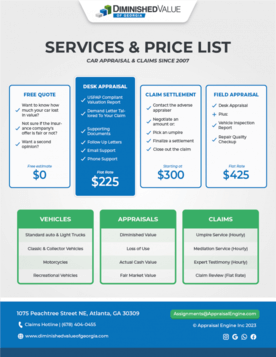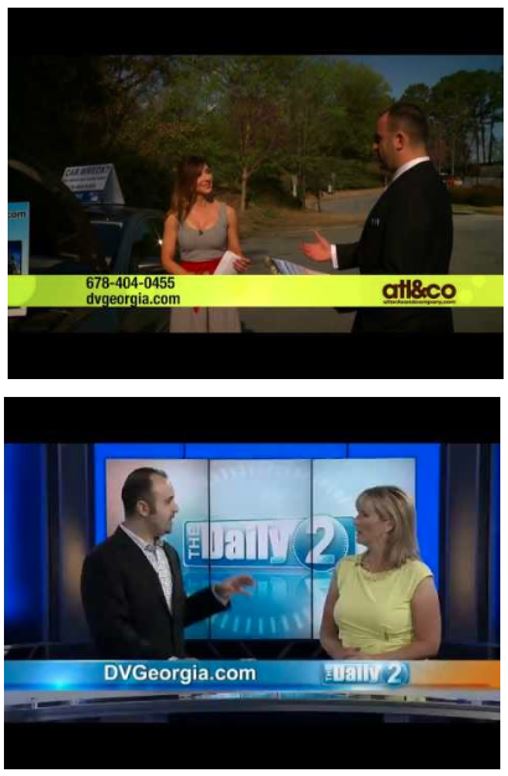
If the insurance company is offering you an unfair loss in value amount, you need to hire an independent appraiser to rebut their valuation.
You can also escalate the claim by contacting the Virginia Insurance Commissioner.
To get the process started and to get a free estimate, please fill out the form below.
Insurance Bad Faith in Virginia
Citation: Va. Code§38.1-52.9(1950)
Citation seems outdated. This looks like the desired information.
§ 38.2-510. Unfair claim settlement practices.
A. No person shall commit or perform with such frequency as to indicate a general business practice any of the following:
1. Misrepresenting pertinent facts or insurance policy provisions relating to coverages at issue;
2. Failing to acknowledge and act reasonably promptly upon communications with respect to claims arising under insurance policies;
3. Failing to adopt and implement reasonable standards for the prompt investigation of claims arising under insurance policies;
4. Refusing arbitrarily and unreasonably to pay claims;
5. Failing to affirm or deny coverage of claims within a reasonable time after proof of loss statements have been completed;
6. Not attempting in good faith to make prompt, fair and equitable settlements of claims in which liability has become reasonably clear;
7. Compelling insureds to institute litigation to recover amounts due under an insurance policy by offering substantially less than the amounts ultimately recovered in actions brought by such insureds;
8. Attempting to settle claims for less than the amount to which a reasonable man would have believed he was entitled by reference to written or printed advertising material accompanying or made part of an application;
9. Attempting to settle claims on the basis of an application that was altered without notice to, or knowledge or consent of, the insured;
10. Making claims payments to insureds or beneficiaries not accompanied by a statement setting forth the coverage under which payments are being made;
11. Making known to insureds or claimants a policy of appealing from arbitration awards in favor of insureds or claimants for the purpose of compelling them to accept settlements or compromises less than the amount awarded in arbitration;
12. Delaying the investigation or payment of claims by requiring an insured, a claimant, or the physician of either to submit a preliminary claim report and then requiring the subsequent submission of formal proof of loss forms, when both contain substantially the same information;
13. Failing to promptly settle claims where liability has become reasonably clear, under one portion of the insurance policy coverage in order to influence settlements under other portions of the insurance policy coverage;
14. Failing to promptly provide a reasonable explanation of the basis in the insurance policy in relation to the facts or applicable law for denial of a claim or for the offer of a compromise settlement;
15. Failing to comply with § 38.2-3407.15, or to perform any provider contract provision required by that section;
16. Payment to an insurer or its representative by a repair facility, or acceptance by an insurer or its representative from a repair facility, directly or indirectly, of any kickback, rebate, commission, thing of value, or other consideration in connection with such person’s appraisal service; or
17. Making appraisals of the cost of repairing an automobile that has been damaged as a result of a collision unless such appraisal is based upon a personal inspection by a representative of the repair facility or the insurer who is making the appraisal.
B. No violation of this section shall of itself be deemed to create any cause of action in favor of any person other than the Commission; but nothing in this subsection shall impair the right of any person to seek redress at law or equity for any conduct for which action may be brought.
C. 1. No insurer shall prepare or use an estimate of the cost of automobile repairs based on the use of an after market part, as defined herein, unless:
The insurer discloses to the claimant in writing either on the estimate or in a separate document attached to the estimate the following information:
“THIS ESTIMATE HAS BEEN PREPARED BASED ON THE USE OF AUTOMOBILE PARTS NOT MADE BY THE ORIGINAL MANUFACTURER. PARTS USED IN THE REPAIR OF YOUR VEHICLE BY OTHER THAN THE ORIGINAL MANUFACTURER ARE REQUIRED TO BE AT LEAST EQUAL IN LIKE KIND AND QUALITY IN TERMS OF FIT, QUALITY AND PERFORMANCE TO THE ORIGINAL MANUFACTURER PARTS THEY ARE REPLACING.”
2. “After market part” as used in this section shall mean an automobile part which is not made by the original equipment manufacturer and which is a sheet metal or plastic part generally constituting the exterior of a motor vehicle, including inner and outer panels.
Loss in Value Questionnaire (Will take 2 minutes of your time)
Please fill out the form below to receive a FREE Diminished Value estimate.






